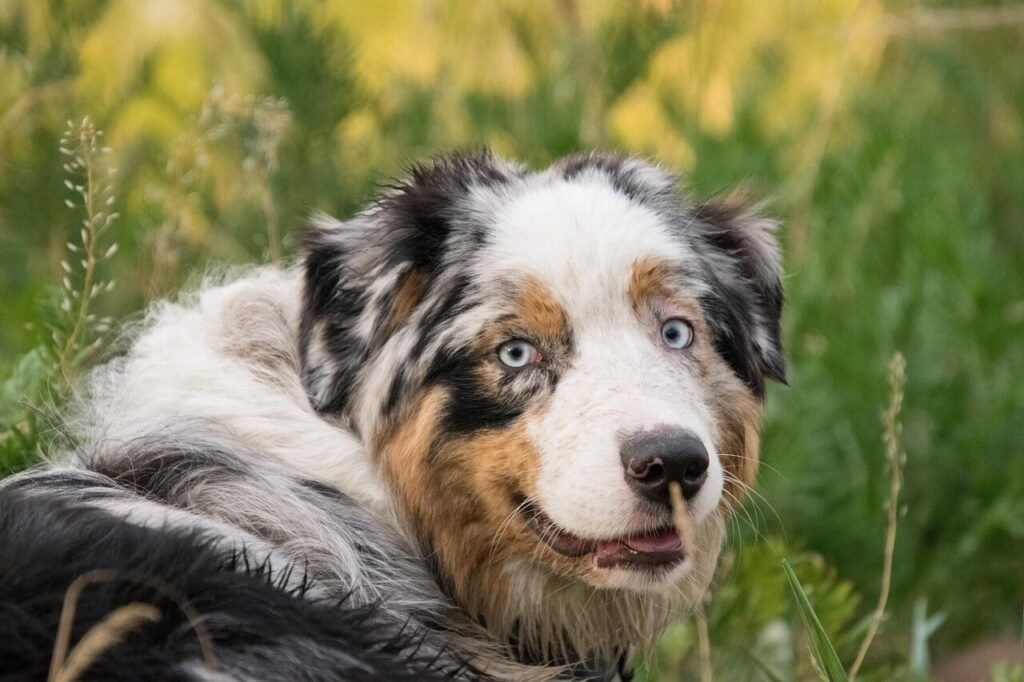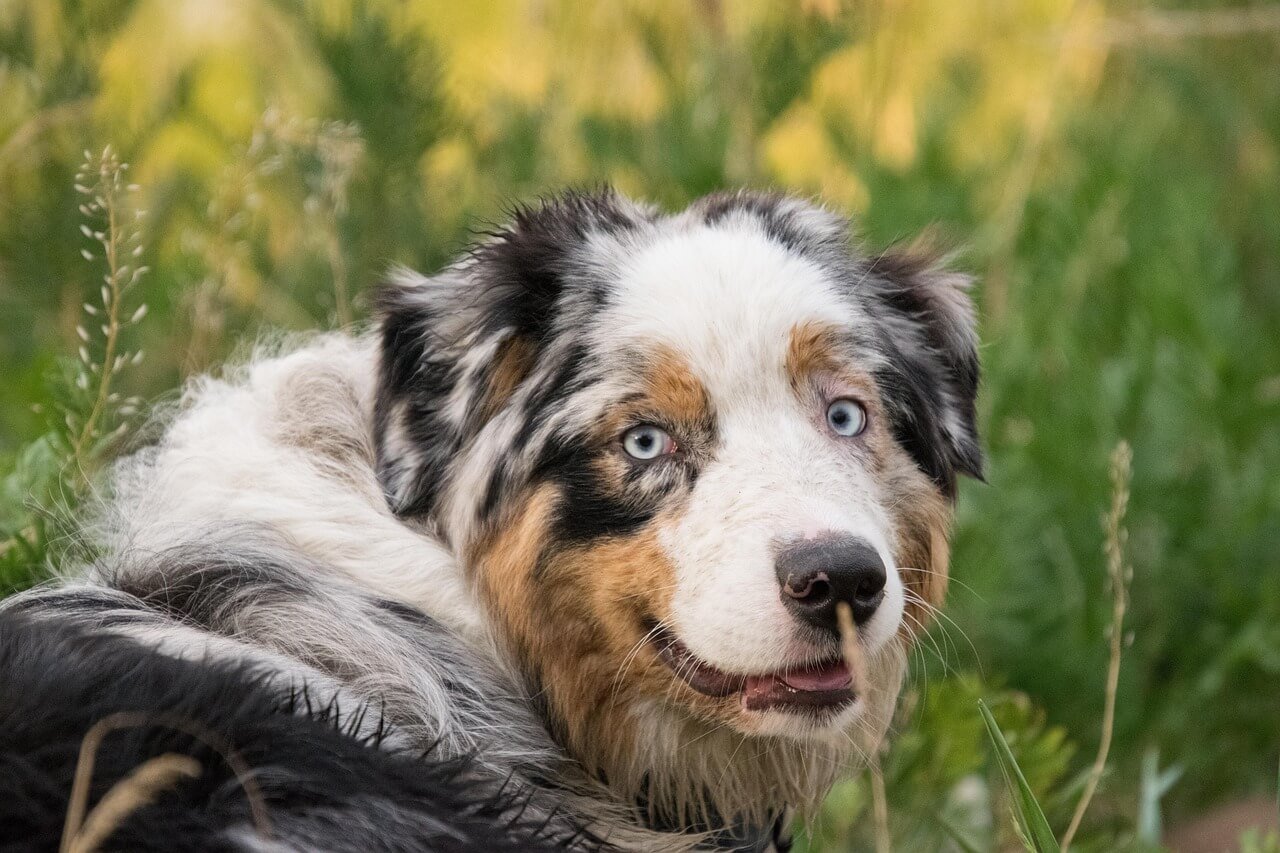Why Does My Dog Lick My Face When I Lay Down?
Have you ever found yourself lying down on the couch or bed, only to be greeted by your furry friend’s wet and enthusiastic licks? If you’re a dog owner, this behavior is probably familiar. But why does your dog feel the need to shower you with affection in this particular way when you’re relaxing? While it may seem random, there’s actually a lot of meaning behind those slobbery kisses. Let’s dive into the fascinating reasons behind this adorable yet sometimes puzzling behavior.
The Roots of Licking: A Look at Instinctual Behavior
Dogs are creatures of instinct, and many of their behaviors can be traced back to their ancestors. Here’s how these instincts might explain why your dog licks your face when you lay down:
Bonding from Puppyhood : Puppies often lick their mother’s face as a way to communicate hunger and seek comfort. This early bonding behavior can carry over into adulthood.
Pack Dynamics : In the wild, licking was a way for dogs to show submission or respect to higher-ranking pack members. Your dog may see you as their leader.
Exploration : Dogs use their mouths and tongues to explore the world around them. Licking your face could simply be their way of “tasting” your scent.
Affection and Trust : Licking is a sign of trust and love. When your dog licks you, they’re showing that they feel safe and connected to you.
Seeking Attention : Sometimes, dogs lick because they know it gets a reaction from you. Whether it’s laughter, petting, or even scolding, any response reinforces the behavior.
Understanding these instinctual roots can help you appreciate your dog’s actions as more than just random behavior—it’s a reflection of their natural tendencies and deep connection to you.
Emotional Reasons Behind Face Licking
Beyond instinct, your dog’s face-licking habit can also stem from emotional motivations. These moments of intimacy reveal a lot about how your dog feels about you:
Comfort and Security : Lying down makes you appear more relaxed and approachable to your dog. They may see this as an opportunity to express their affection.
Stress Relief : Just like humans have coping mechanisms, dogs sometimes lick to calm themselves during stressful situations. Being close to you provides reassurance.
Happiness and Excitement : When you’re lying down, your dog might interpret it as downtime together. Their excitement leads to licking as a form of celebration.
Marking You as Their Own : By licking your face, your dog is essentially marking you with their scent. It’s their way of saying, “You belong to me!”
Curiosity About Your Mood : Dogs are incredibly perceptive. If they sense you’re feeling low or unwell, licking might be their attempt to cheer you up.
These emotional triggers highlight the depth of your dog’s attachment to you and their desire to connect on a personal level.
Check this guide 👉Why Does My Dog Lick the Air When I Pet Him? Best 7 Tips!
Check this guide 👉Why Does My Dog Only Eat When Im Home? Best 7 Expert Tips!
Check this guide 👉Why Does My Dog Eat So Fast? Best 7 Health Tips!

Possible Reasons for Licking | What You Can Do |
|---|---|
Bonding and Affection | Enjoy the moment; reciprocate with gentle pets. |
Seeking Attention | Redirect their energy with toys or games. |
Exploring Scents and Tastes | Offer dental chews to satisfy their oral needs. |
Stress or Anxiety | Provide a calming environment or consult a vet. |
Marking Territory | Reinforce positive behaviors through training. |
Health Benefits of Allowing Your Dog to Lick You
While some people worry about germs, allowing your dog to lick you occasionally can have surprising benefits—for both you and your pup:
Boosts Oxytocin Levels : Studies show that interactions like licking release oxytocin, the “love hormone,” which strengthens your bond.
Encourages Good Oral Health : Believe it or not, dog saliva has mild antibacterial properties that can help clean minor wounds.
Promotes Relaxation : The rhythmic motion of licking can be soothing for both you and your dog, reducing stress levels.
Improves Communication : Responding positively to licking helps your dog understand what behaviors make you happy.
Strengthens Emotional Connection : Allowing your dog to express affection builds mutual trust and understanding.
By embracing this natural behavior, you’re fostering a healthier relationship with your canine companion.
When to Set Boundaries Around Licking
While licking is generally harmless, there are times when setting limits is necessary for everyone’s well-being:
Excessive Licking : If your dog won’t stop licking, it could indicate anxiety or boredom. Consider providing mental stimulation or consulting a professional.
Sensitive Skin : Some individuals have sensitive skin that reacts poorly to saliva. Gently redirect your dog to avoid irritation.
Hygiene Concerns : Although rare, certain bacteria in dog saliva can cause infections. Keep open wounds covered and wash hands after contact.
Respecting Personal Space : Not everyone enjoys being licked. Train your dog to recognize cues like turning away or crossing arms.
Teaching Alternative Behaviors : Reward your dog for using other forms of affection, such as sitting calmly beside you instead of licking.
Setting boundaries ensures that both you and your dog remain comfortable while maintaining a loving relationship.
Physical Reasons Why Dogs Lick Faces
While emotional and instinctual factors play a significant role, there are also physical reasons why your dog might be drawn to licking your face. These explanations delve into the sensory and biological aspects of this behavior:
Salt and Sweat Attraction : Dogs are naturally drawn to the salty taste of human sweat, which often accumulates on the skin, especially around the face.
Scent Exploration : Your face carries unique scents from lotions, food, or even environmental factors that intrigue your dog’s keen sense of smell.
Temperature Sensitivity : When you lie down, your body heat may rise slightly, making your face more appealing to your dog as they seek warmth.
Moisture Detection : If your skin feels damp, such as after sweating or washing your face, your dog may lick it out of curiosity or habit.
Oral Fixation : Some dogs simply enjoy the sensation of licking as a form of self-soothing or stimulation.
These physical triggers remind us that dogs experience the world differently than we do, using their tongues and noses to gather information about their surroundings.
How to Encourage Positive Licking Behavior
If you enjoy your dog’s affectionate licks but want to ensure the behavior remains healthy and controlled, here are some tips to guide them in the right direction:
Reward Calm Behavior : Praise your dog when they lick gently and stop on their own, reinforcing polite interactions.
Provide Chew Toys : Redirect excessive licking toward durable chew toys that satisfy their oral fixation.
Use Verbal Cues : Teach commands like “enough” or “stop” to let your dog know when licking becomes too much.
Set Clear Boundaries : Consistently communicate when licking is acceptable and when it’s not, helping your dog understand your preferences.
Incorporate Training Sessions : Use short training exercises to channel their energy into productive activities, reducing impulsive licking.
By guiding your dog’s behavior thoughtfully, you can maintain a balance between affection and respect for personal space.
Signs That Licking Indicates a Problem
While licking is usually harmless, certain signs can indicate that your dog’s behavior might stem from an underlying issue. Here’s what to watch out for:
Obsessive Licking : If your dog licks nonstop, even when you’re not lying down, it could signal anxiety or compulsive tendencies.
Targeting Specific Areas : Excessive focus on one part of your face, like your lips or nose, might suggest curiosity about something unusual, such as a scent or texture.
Agitation After Licking : If your dog seems restless or uncomfortable after licking, they may be trying to relieve stress or discomfort.
Changes in Frequency : A sudden increase in licking could point to a medical issue, such as digestive problems or allergies.
Accompanying Symptoms : Behaviors like pacing, whining, or panting alongside licking may indicate pain or distress.
Recognizing these signs early allows you to address potential concerns and ensure your dog remains happy and healthy while expressing their affection.
FAQ
Is it normal for my dog to lick my face every time I lie down?
Yes, this behavior is completely normal. It’s a mix of instinct, affection, and curiosity.
Should I let my dog lick me if I’m sick?
While occasional licking isn’t harmful, avoid letting your dog lick you if you have open sores or a weakened immune system.
Can excessive licking indicate a health issue?
Yes, excessive licking could signal anxiety, boredom, or an underlying medical condition. Consult your vet if you’re concerned.
How do I stop my dog from licking my face?
Use positive reinforcement to teach alternative behaviors, like sitting quietly or fetching a toy.
Are there any risks associated with dog saliva?
Though rare, dog saliva can carry bacteria that might cause infections. Practice good hygiene to minimize risks.
Celebrating the Unique Bond Between You and Your Dog
Your dog’s habit of licking your face when you lay down is more than just a quirky behavior—it’s a testament to the incredible bond you share. Whether it’s driven by instinct, emotion, or simple curiosity, each lick is a reminder of the unconditional love and loyalty your furry friend offers. By understanding the reasons behind this behavior, you can deepen your connection and create even more meaningful moments together. So the next time your dog showers you with kisses, take a moment to cherish the unique relationship you’ve built. After all, life is better with a little extra slobber and lots of wagging tails!
Do Cats Have Taste Buds? Best 7 Expert Tips! – Discover how cats experience flavors and why their taste is so unique.
Do Dogs Have Taste Buds? Best 7 Expert Tips! – Discover how dogs experience taste, their preferences, and what it means for their diet and health.
Can Cats Taste Sweet? Best 7 Expert Tips! – Discover why cats can’t taste sweetness, how it affects their diet, and tips to keep them healthy and happy.
Can Dogs Taste Sweet? Best 7 Expert Tips! – Discover how dogs perceive sweetness, which foods are safe, and tips to manage their sweet cravings responsibly.





